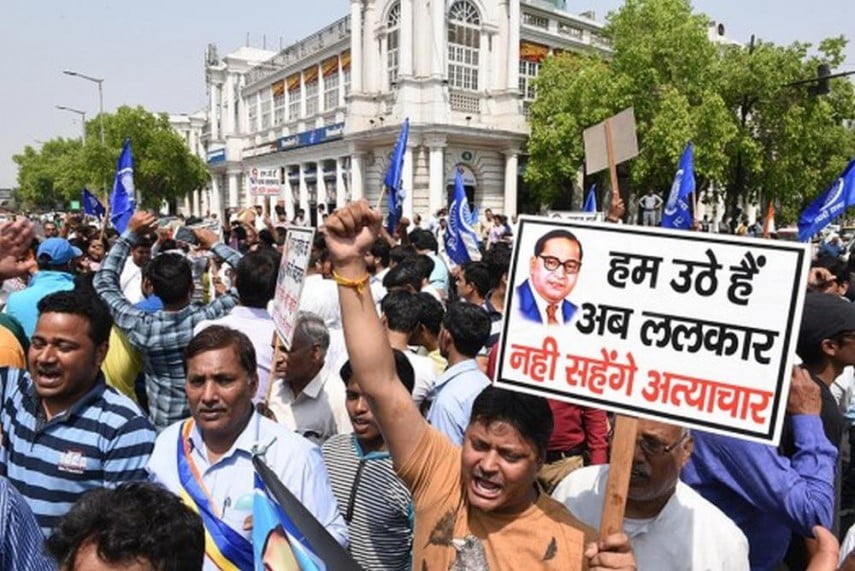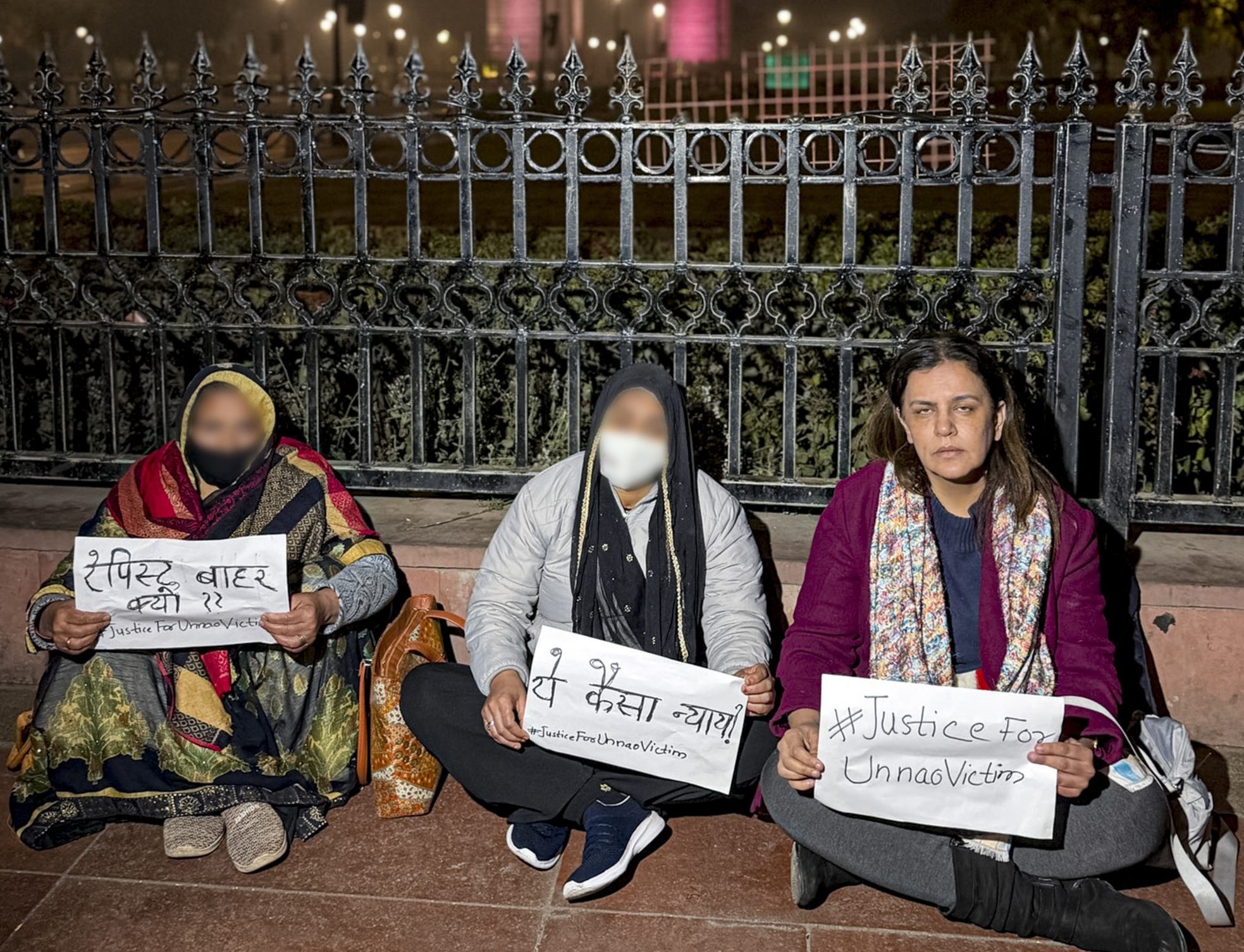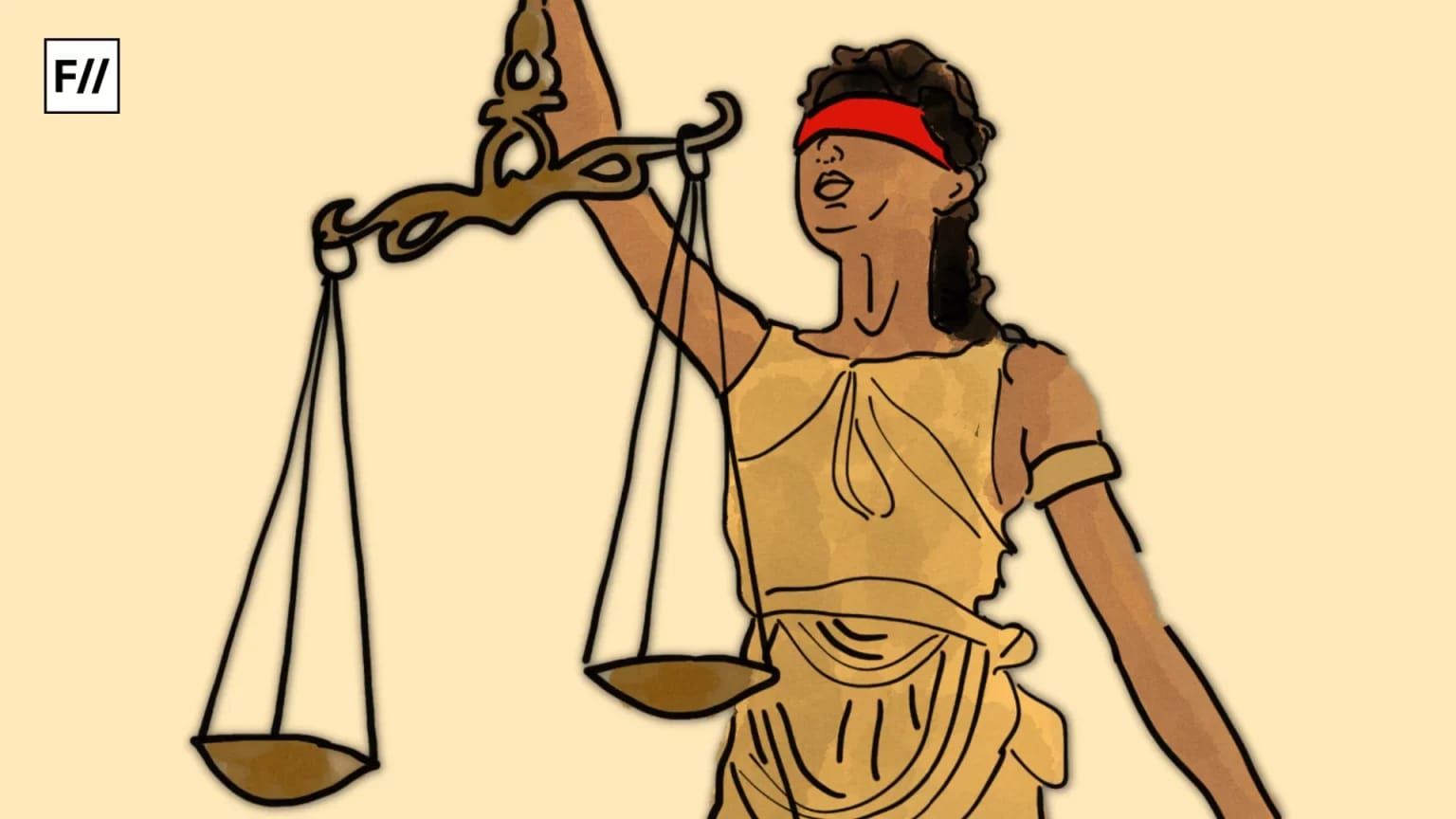Editor’s Note: This month, that is April 2020, FII’s #MoodOfTheMonth is Dalit History, where we invite various articles about historical moments in Dalit movements as well as Dalits (Ambedkar, Savitribai Phule) in history who have been part of the anti-caste movement in India. If you’d like to share your article, email us at pragya@feminisminindia.com.
Posted by Kadambari Agarwal
On the occasion of Ambedkar Jayanti, it is crucial that one takes a moment to remember this great man’s struggles and successes in his fight against the caste system prevalent in India. From Annihilation of Caste to Who Were The Shudras, Dr. B R Ambedkar has, with an incredibly singular focus, attacked and struck at the caste system in India.
His crusades gave birth to several policies that helped provide legal protections to those marginalised by the caste system in India. In this article, some common questions relating to the provisions of the Scheduled Caste and Scheduled Tribe (Prevention of Atrocities) Act,1989 (SC/ST PoA Act) will be explored. This particular law was introduced much after his time, but it is the product of his efforts and years of advocacy.
Is it a crime to discriminate against me based on my caste?
If you are being discriminated against owing to your caste identity, this is a crime under the SC/ST PoA Act. It is important to know that such discrimination can happen anywhere — from a public place to your place of employment. You should file a complaint to the police against the person discriminating against you.
Which acts are considered as crimes against the Scheduled Caste/Scheduled Tribe (SC/ST) community?
Certain acts are considered crimes and are referred to as atrocities in legal terminology, when committed against a member of the SC/ST community. Some of these acts are:
- Hurting or boycotting an SC/ST member.
- Force-feeding an SC/ST member any disgusting substance that is not fit for humans to eat, such as cow dung, human excreta, etc..
- Dumping any disgusting substances (such as the bodies of dead animals, or excreta) inside or at the gate of a place where SC/ST members live, or in a neighbourhood of an SC/ST member, but only if it is done to insult or annoy him, etc.
- Not allowing an SC/ST member entry to a public place.
- Publicly abusing or insulting an SC/ST member with their caste name.
The punishment for these acts is imprisonment between 6 months and 5 years, along with a fine. For a full list of atrocities committed against SC/ST members that are covered under the law, please read this.
What is the punishment for making a false statement against a SC/ST member?
It is a crime to make a false statement against an SC/ST member, which leads them to being falsely accused of a crime. The punishment for this is as follows:
- If a SC/ST member is falsely accused of a crime punishable by death, one will face life imprisonment and a fine.
- If the false statement causes the SC/ST member to be given the death penalty, one may face the death sentence.
- If the false case/statements result in the SC/ST member being accused of a crime punishable with 7 years or more of imprisonment, one will face imprisonment of a term of 6 months to 7 years.
What does the illegal takeover of property belonging to a SC/ST member mean?
If someone forcefully takes over the property belonging to a SC/ST member, they can be punished under the SC ST (PoA) Act. It is considered illegal if it is done
- Without the agreement of the victim, or
- By threatening her or someone connected to her, or
- By making false records.
Please see here for more information.
Also read: Institutional Casteism: 4 Years After Rohith Vemula, Has Anything Changed?
What is the punishment for interfering with the voting rights of an SC/ST member?
It is a crime to interfere with the voting rights of members of SCs or STs — for example, forcing an SC/ST member to vote a certain way, or stopping them from standing in elections. Any such interference can be punished with imprisonment between 6 months and 5 years along with a fine.
Does the investigating police officer need a warrant or any kind of permission before making an arrest under the SC/ST PoA Act?
If the investigation officer wants to arrest someone for a complaint filed under this law, they require neither any prior approval of their seniors nor to conduct any preliminary investigation.
Can one apply for anticipatory bail fearing arrest under this law?
A person who fears arrest for crimes that he may or may not have committed under the SC/ST PoA Act cannot file for anticipatory bail. Section 18A of the Act was introduced into the law by way of the 2018 amendment, and it specifically excludes the provision of anticipatory bail for all offences committed under this Act.
What kind of relief is provided to victims of atrocities under this law?
If you have faced caste-based violence and discrimination, under this law, you may receive immediate relief measures by the district administration, which include making arrangements in cash and/or kind to victims, their family members and dependents. It could also include relief in the form of food, water, clothing, shelter, medical aid, transport facilities and any other essential items. In cases of death, injury to persons or damage to property, either the victims or their dependents have an additional right to claim compensation.
Please see here for more information.
What avenues do I have to complain against violence and discrimination?
If you have faced caste-based violence and discrimination, you may approach the nearest police station and lodge an FIR. The police station will also put you in touch with the SC/ST Protection Cell. In addition, you can approach the National Commission for Scheduled Castes and National Commission for Scheduled Tribes.
Further, portals and cells have been instituted in colleges for recording instances of caste-based discrimination. For example, Indian Institute of Science has a portal for this purpose.
Also read: The Search For Caste Solidarity: Dalit Women In India And Nepal
The SC/ST PoA Act has certain safeguards with respect to victims of discrimination, witnesses and their dependents. In addition, it is the duty of states to ensure that discrimination against the SC/ST community is limited as far as possible. In a society where even after more than 70 years of independence, discrimination runs unbound, these safeguards have more importance than ever.
Kadambari Agarwal is a Research Assistant at Vidhi Centre for Legal Policy.
Featured Image Source: Outlook India
About the author(s)
Nyaaya is a free online resource, explaining and documenting India’s laws. Guides, visualisations and illustrations help to demystify the law.




